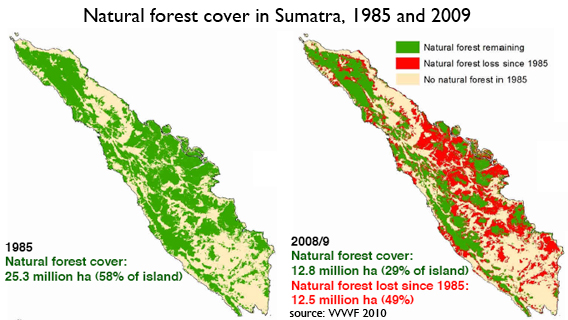
More than 40 million hectares of land has been acquired in developing countries for biofuel production in the past decade, reports a new study published by the International Land Coalition.
The research looked exclusively at large land acquisitions between 2000 and 2010. These amounted to 200 million hectares of land, of which the authors were able to discern the intent for 71 million ha.
Surprisingly the report, titled “Land Rights and the Rush for Land: Findings of the Global Commercial Pressures on Land Research Project”, found that food production was only the focus of less than a fifth of the land deals. Nearly 60 percent was for biofuels.
The report says that while large investments in agriculture can bring benefits, “they are more likely to cause problems for the poorest members of society, who often lose access to land and resources that are essential to their livelihoods.” The reason? The rural poor often lack rights to the land they traditionally use. Furthermore, benefits from land deals typically skew toward local elites.
“The competition for land is becoming increasingly global and increasingly unequal. Weak governance, corruption and a lack of transparency in decision-making, which are key features of the typical environment in which large-scale land acquisitions take place, mean that the poor gain few benefits from these deals but pay high costs,” Madiodio Niasse, Secretariat Director of the International Land Coalition, said in a statement.
“As governments own the land it is easy for them to lease large areas to investors, but the benefits for local communities or national treasuries are often minimal,” added co-author Lorenzo Cotula of the International Institute for Environment and Development. “This highlights the need for poor communities to have stronger rights over the land they have lived on for generations.”
The report notes that while international trade agreements provide legal protection to large investors, there are fewer such protections for small land users, who can rarely afford legal representation. Additionally governments typically favor large, industrial farming over small-scale approaches, according to the report.
Land Rights and the Rush for Land says that although the “dispossession and marginalization of the rural poor is nothing new”, the current rush for land is accelerating, making the problem worse.
“There is little in our findings to suggest that the term ‘land grabbing’ is not widely deserved,” says Michael Taylor, ILC Secretariat’s Programme Manager, Global Policy and Africa.
The report concludes with a series of recommendations including recognizing the customary land and resource rights of rural people, improving transparency around land-use decisions, increasing emphasis on smallholder production in agricultural development strategies, ensuring international human rights law work for the rural poor, and incorporating concepts of environmental sustainability into land and water-based acquisitions and investments.
Related articles







